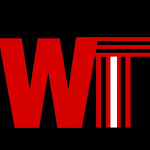Code Manipulation: Unraveling the Hypothetical Realm of an Alterable Simulation
In the ever-expanding landscape of technological innovation and speculative theories, the concept of the world being a simulation has gained traction. What if, in this hypothetical scenario, humans possessed the ability to alter the code governing this simulated reality? In this exploration, we venture into the realms of virtuality, contemplating the implications, possibilities, and ethical considerations of a world where reality itself is programmable.
The Fabric of Reality as Code:
In this speculative scenario, the foundation of reality is akin to lines of code in a sophisticated program. Every aspect of our existence, from the laws of physics to the intricacies of human consciousness, is governed by a meticulously designed set of instructions. If the world is a simulation, then the very fabric of reality is manipulable through the understanding and alteration of this underlying code.
Limitless Possibilities:
The notion of being able to alter the code that defines our reality opens the door to limitless possibilities. Imagine the ability to tweak fundamental constants, such as gravity or the speed of light, to create a universe with entirely different physical laws. The power to reshape landscapes, alter weather patterns, or even redefine the concept of time itself becomes a tantalizing prospect.
Creation and Innovation Unleashed:
In a world where altering the code is possible, human creativity and innovation would reach unprecedented heights. The barriers imposed by natural limitations could be transcended, leading to the creation of technologies and advancements beyond our current comprehension. The very essence of progress would take on a new meaning as humanity navigates the uncharted territories of an alterable reality.
Personalized Realities:
The ability to modify the underlying code could extend to personal experiences, allowing individuals to craft their own realities. Customized environments, tailored to suit individual preferences and desires, would redefine the concept of subjective experience. From idyllic landscapes to fantastical realms, the diversity of personal realities would be as vast as the imagination itself.
Ethical Considerations and Consequences:
While the prospect of code alteration brings forth exhilarating possibilities, it also raises profound ethical considerations. The power to manipulate reality on such a fundamental level carries the risk of unintended consequences. Questions about the ethical use of this technology, the potential for misuse, and the responsibility associated with playing with the fabric of reality would be paramount.
Existential Questions and Identity:
The ability to alter the code underlying reality prompts profound existential questions about the nature of identity and existence. If individuals can customize their experiences, does the concept of a shared reality lose its significance? How would the understanding of self and others evolve in a world where each person could curate their own version of reality?
Technological Evolution and Code Governance:
In a reality-altering scenario, the governance of code becomes a critical aspect of societal structure. Technological systems designed to regulate and monitor code alterations would emerge, ensuring the responsible use of this transformative capability. The development of ethical guidelines, regulations, and oversight mechanisms would be essential to prevent chaos and safeguard against unintended consequences.
Shifts in Perception and Understanding:
The realization that reality is alterable could lead to shifts in human perception and understanding. Concepts of truth, objectivity, and the nature of reality itself would undergo profound transformations. The pursuit of knowledge might shift from uncovering inherent truths to exploring the boundless possibilities within the malleable confines of the simulated world.
Collaborative Reality Building:
The ability to alter the code of reality could foster a sense of collective responsibility for the world's design. Humanity might engage in collaborative efforts to shape and refine the simulated environment, working together to address challenges, enhance shared experiences, and collectively steer the course of the simulated world's evolution.
The exploration of a world where humans can alter the code governing reality is a thought experiment that delves into the very essence of existence and our relationship with the fabric of the universe. While firmly rooted in the realm of speculation, it prompts us to contemplate the boundaries of human potential, the ethical considerations of wielding such power, and the profound implications for our understanding of reality. As we navigate the complexities of our own existence, the idea of an alterable simulation invites us to ponder the nature of the universe and our place within its intricately woven code.
